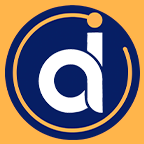Understanding the Role of a Software Product Developer
A software product developer is a key player in bringing digital products to market successfully. Their work goes beyond just writing code; they focus on creating solutions that meet market needs while ensuring the user experience is top-notch. Below is a brief overview of what a software product developer does:
- Design and develop software products from scratch.
- Collaborate with stakeholders and cross-functional teams.
- Engage in continuous testing and improvement.
- Implement user feedback to refine the product.
The software product developer’s journey is intricate and multifaceted, requiring a blend of technical skills and an understanding of market dynamics.
I’m Umair Majeed, CEO of Datics AI. With a strong background in software product development, I have led teams in creating innovative tech solutions globally. My focus has always been to cater to client needs with precision and open communication.
Let’s dive deeper into what makes a software product developer essential in modern tech companies.
What is a Software Product Developer?
A software product developer is a professional who combines technical skills with an understanding of user needs to create software products. This role goes beyond just writing code; it involves a holistic approach to developing software that meets business objectives and user expectations.
Key Responsibilities
A software product developer wears many hats. Here are some of the key responsibilities:
- Prototyping: Creating initial versions of the software to explore ideas and gather feedback.
- Testing: Ensuring the software is bug-free and meets quality standards through automated and manual testing.
- Collaboration: Working closely with stakeholders, designers, and other developers to align on goals and requirements.
- Timelines and Budgets: Managing project timelines and budgets to ensure the software is delivered on time and within financial constraints.
- Quality Standards: Maintaining high-quality standards to ensure the software is reliable and performs well.
Essential Skills
A software product developer must have a diverse skill set. Here are some essential skills:
- Coding: Proficiency in programming languages like JavaScript, Python, Java, and C++.
- Application Development: Experience in developing applications that solve specific problems for users.
- Database Management: Knowledge of managing and optimizing databases for efficient data storage and retrieval.
- Cybersecurity: Ensuring the software is secure from potential threats and vulnerabilities.
- Usability: Creating software that is easy to use and meets user needs.
Example: Imagine a developer named Sarah who is working on a new mobile app. She starts by creating a prototype to show stakeholders. After receiving feedback, she collaborates with her team to refine the app, ensuring it meets user needs and is free of bugs. Sarah also manages the project timeline and budget, ensuring the app is delivered on time and within budget.
Quote: “A great product developer is not just a coder; they are a problem solver who understands the user and the market,” says Umair Majeed, CEO of Datics AI.
Fact: According to a Forbes article, the demand for software developers is expected to grow by 26% from 2022 to 2032, highlighting the increasing need for skilled professionals in this field.
Statistics: A study found that 60% of software projects fail due to poor project management and lack of user involvement. This underscores the importance of having skilled product developers who can manage timelines, budgets, and stakeholder expectations effectively.
Case Study: A leading tech company once faced delays and budget overruns in their software projects. They hired a team of product developers who streamlined the process, resulting in a 30% reduction in time-to-market and a 20% increase in user satisfaction.
By understanding the role, responsibilities, and skills of a software product developer, companies can better appreciate the value these professionals bring to their projects. This holistic approach ensures that the software is not only functional but also user-friendly and market-ready.
Next, we’ll explore the journey from programmer to product developer, highlighting the attitude shifts and stakeholder engagement required for success.
The Journey from Programmer to Product Developer
The Attitude of a Programmer
A programmer often focuses on writing code. Their primary goal is to turn specifications into working software. They excel in solving technical problems and ensuring the backend functions smoothly. However, this focus on code can sometimes limit their broader understanding of the product and its users.
Programmers typically have:
- Limited stakeholder interaction: They usually communicate through a requirements specialist. This indirect line of communication can lead to misunderstandings about what stakeholders actually need.
- Goal setting: Goals are often handed to them, and the recurring aim is to finish the selected work. This can lead to a lack of inspiration and value-driven focus.
- Review sessions: Programmers may attend review sessions but rarely take part in preparing or hosting them. These sessions often become technical demonstrations, difficult for non-technical stakeholders to follow.
The Attitude of a Product Developer
In contrast, a product developer is proactive. They seek a deep understanding of stakeholder needs and actively engage in the product development process. This shift from a reactive to a proactive attitude involves several key changes:
- Stakeholder engagement: Product developers actively collaborate with stakeholders. They gather actionable ideas by interviewing people with a real stake in the product. This direct feedback loop helps them understand what is truly valuable.
- Product findy: They participate in field testing, experiments, and research to find new features. This proactive behavior often leads to more valuable features and avoids unnecessary work.
- Value delivery: For each backlog item, they articulate why it’s important to users. This focus on value ensures that every piece of work contributes to user satisfaction.
- Responsiveness: Product developers are quick to adapt to changing needs and new insights. They release new versions frequently, allowing for realistic feedback and timely adjustments.
By shifting from a programmer’s reactive approach to a product developer’s proactive stance, teams can build products that truly meet stakeholder needs. This change involves not just technical skills but also a change in mindset, focusing on value delivery and continuous stakeholder engagement.
Differences Between Software Engineers and Product Engineers
Software Engineers
Software engineers are the backbone of technical development. They focus on coding, system optimization, and ensuring the software runs smoothly.
Technical Problems: Software engineers excel at solving complex technical issues. They dig deep into the code to find and fix bugs, optimize performance, and ensure everything works as intended.
System Optimization: They look for ways to make systems faster and more efficient. This includes improving algorithms, reducing load times, and ensuring that the software can handle more users as it grows.
Clean Code: Writing clean, maintainable code is a priority. Software engineers follow best practices to ensure their code is easy to read and modify. This makes it easier for other developers to understand and work on the same codebase.
Security: Security is a major concern. Software engineers build defenses against potential threats, ensuring that the software is safe from attacks and data breaches.
Scalability: They design systems that can scale. As the number of users grows, the software should still perform well. This involves planning for increased load and making sure the infrastructure can support it.
Product Engineers
Product engineers, on the other hand, are more focused on the user experience and product success.
User Empathy: Product engineers have a deep understanding of users’ needs. They talk to customers, gather feedback, and use this information to guide their development. They build with the user in mind.
Problem-Solving: They focus on solving real-world problems. Instead of just writing code, they look at how the product can address user pain points and improve their experience.
Product Ownership: Product engineers take ownership of the product. They are responsible for its success or failure. This means they are involved in all stages of development, from initial concept to final release.
Rapid Iteration: They are willing to build fast and iterate. If something isn’t working, they quickly make changes and test new ideas. This allows for rapid improvements and keeps the product evolving.
Customer Feedback: They actively seek out and respond to customer feedback. This helps them prioritize features and fixes that will have the most impact on user satisfaction.
In summary, while both roles involve coding, their focus is different. Software engineers prioritize technical excellence, security, and scalability. Product engineers prioritize user needs, problem-solving, and rapid iteration. This blend of skills and focus areas is what makes modern product development teams so effective.
The Role of Product Engineers in Modern Companies
Why Demand for Product Engineers is Growing
The demand for product engineers is skyrocketing, especially in the startup world. Why? Because startups need to ship product improvements faster. They thrive on quick iterations and rapid feedback loops. Product engineers are perfect for this because they are customer-obsessed and can work autonomously.
Startups like Incident.io and Ghost have shown that having engineers who talk directly to customers and understand their needs can make a huge difference. They don’t just build software; they build solutions that people love to use.
Innovation is another big reason. Product engineers bring a blend of technical and product-focused skills that drive creativity. They are not just coding; they are thinking about how to solve real problems for users. This makes them invaluable for driving new ideas and features.
In larger companies, product engineers help create smaller, agile teams. These teams can move quickly and experiment without the overhead of big, bureaucratic processes. This is crucial for maintaining a competitive edge and fostering a culture of continuous improvement.
When to Hire Product Engineers
So, when should you consider hiring product engineers? Here are a few scenarios:
Startups: If you are in the early stages, you need to get your product to market quickly. Product engineers can help you iterate fast and respond to user feedback.
B2B SaaS: In business-to-business software-as-a-service, understanding and solving specific customer problems is key. Product engineers excel at this.
Consumer Subscription Services: For services that depend on high user satisfaction and retention, product engineers can help you build features that keep users engaged.
Large Enterprises: Even big companies need innovation. Smaller, agile teams led by product engineers can drive new product ideas and improvements.
In all these cases, the goal is the same: to build products that users love, faster. Product engineers are uniquely equipped to do this, thanks to their blend of coding skills and customer focus.
Frequently Asked Questions about Software Product Developers
What is a product software developer?
A product software developer is a professional who blends technical skills with a deep understanding of user needs and market demands. Unlike traditional software developers who focus mainly on coding, product software developers are involved in the entire product lifecycle. They work on designing, developing, and refining software products that solve real-world problems.
Think of them as a mix of a software developer, UX specialist, and product manager. They don’t just write code; they ensure that the software product is user-friendly, meets market needs, and provides a seamless user experience.
What is the role of a software product developer?
The role of a software product developer is multifaceted and includes several key responsibilities:
- Prototyping: Creating early versions of the product to test ideas and functionalities.
- Testing: Ensuring the product is reliable and bug-free through rigorous testing.
- Collaboration: Working closely with stakeholders, designers, and other team members to align on product goals.
- Timelines and Budgets: Managing project timelines and budgets to ensure the product is delivered on time and within financial constraints.
- Quality Standards: Maintaining high-quality standards to ensure the product meets user expectations and industry norms.
They are responsible for turning a concept into a market-ready product that users love.
Are product developer and software developer the same?
No, product developers and software developers are not the same, though their roles do overlap.
Software Developer: Focuses primarily on writing code and developing software applications. Their main goal is to implement specific features and functionalities as per the project requirements.
Product Developer: Takes a broader approach. They are involved in the entire product lifecycle, from initial concept to final delivery. They focus not just on coding but also on user experience, market fit, and overall product strategy.
In simpler terms, while a software developer builds the engine, a product developer designs the entire car, ensuring it runs smoothly and meets user needs.
In the next section, we’ll dive deeper into the specific skills and traits that make a successful software product developer.
Conclusion
At Datics AI, we specialize in custom software development that fits your unique business needs perfectly. Our team excels at taking your ideas from initial concept all the way to post-launch support.
Why choose Datics AI? Here are a few reasons:
- End-to-End Services: We handle every stage of the software development process. From the first consultation to ongoing support, we make sure your project runs smoothly.
- Global Clients: We have a track record of working with clients worldwide. This global experience helps us bring fresh perspectives and innovative solutions to every project.
- Innovative Solutions: We stay at the cutting edge of technology. Whether it’s AI, automation, or advanced analytics, we ensure your software is future-ready.
By partnering with Datics AI, you’re not just getting a software solution. You’re gaining a dedicated team committed to your success. Our custom software is designed to fit your specific workflows, ensuring seamless integration and improved data security.
Ready to transform your business with custom software? Let’s craft your success story together.
Contact us today to get started!




